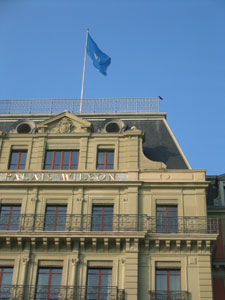Monitoring the core international human rights treaties
What are the treaty bodies?
 The human rights treaty bodies are committees of independent experts that monitor implementation of the core international human rights treaties. Each State party to a treaty has an obligation to take steps to ensure that everyone in the State can enjoy the rights set out in the treaty.
The human rights treaty bodies are committees of independent experts that monitor implementation of the core international human rights treaties. Each State party to a treaty has an obligation to take steps to ensure that everyone in the State can enjoy the rights set out in the treaty.
There are ten human rights treaty bodies composed of independent experts of recognized competence in human rights, who are nominated and elected for fixed renewable terms of four years by State parties
Which treaties do they monitor?
Human Rights Committee (CCPR) monitors implementation of the International Covenant on Civil and Political Rights (1966) and its optional protocols;
Committee on Economic, Social and Cultural Rights (CESCR) monitors implementation of the International Covenant on Economic, Social and Cultural Rights (1966);
Committee on the Elimination of Racial Discrimination (CERD) monitors implementation of the International Convention on the Elimination of All Forms of Racial Discrimination (1965);
Committee on the Elimination of Discrimination against Women (CEDAW) monitors implementation of the Convention on the Elimination of All Forms of Discrimination against Women (1979) and its optional protocol (1999);
Committee against Torture (CAT) monitors implementation of the Convention against Torture and Other Cruel, Inhuman or Degrading Treatment (1984);
Committee on the Rights of the Child (CRC) monitors implementation of the Convention on the Rights of the Child (1989) and its optional protocols (2000);
Committee on Migrant Workers (CMW) monitors implementation of the International Convention on the Protection of the Rights of All Migrant Workers and Members of Their Families (1990);
Committee on the Rights of Persons with Disabilities (CRPD) monitors implementation of the International Convention on the Rights of Persons with Disabilities (2006);
Committee on Enforced Disappearances (CED) monitors implementation of the International Convention for the Protection of All Persons from Enforced Disappearance (2006); and
The Subcommittee on Prevention of Torture and other Cruel, Inhuman or Degrading Treatment or Punishment (SPT) established pursuant to the Optional Protocol of the Convention against Torture (OPCAT) (2002) visits places of detention in order to prevent torture and other cruel, inhuman or degrading treatment or punishment.
The treaty bodies meet in Geneva, Switzerland. All the treaty bodies receive support from the Human Rights Treaties Division of OHCHR in Geneva.
More information about the treaty bodies...
